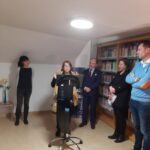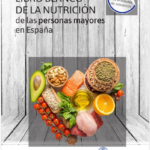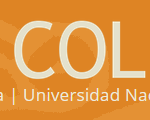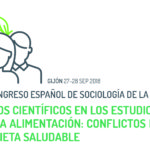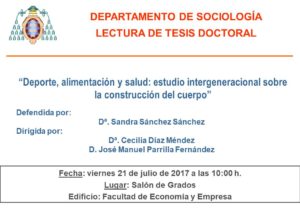 La doctoranda Sandra Sánchez Sánchez defiende su tesis doctoral titulada “Deporte, alimentación y salud: estudio intergeneracional sobre la construcción del cuerpo” el 21 de julio a las 10h en el Salón de Grados de la Facultad de Economía y Empresa (UNIOVI), dirigida por Cecilia Díaz Méndez y José Manuel Parrilla Fernández
La doctoranda Sandra Sánchez Sánchez defiende su tesis doctoral titulada “Deporte, alimentación y salud: estudio intergeneracional sobre la construcción del cuerpo” el 21 de julio a las 10h en el Salón de Grados de la Facultad de Economía y Empresa (UNIOVI), dirigida por Cecilia Díaz Méndez y José Manuel Parrilla Fernández
Resumen:
En la sociedad actual la alimentación, el deporte y la salud confluyen como temas fundamentales en los estilos de vida de los individuos, afectando de manera directa a la construcción del cuerpo. Las prácticas alimentarias, deportivas y saludables, como fenómenos sociales, muestran los nuevos discursos normativos que se ofrecen desde las instituciones y que generan concepciones sobre la imagen de lo que se considera un cuerpo sano. Hacer ejercicio, llevar una alimentación adecuada y preocuparse por la salud se han convertido en el ideal de lo que debería ser un estilo de vida apropiado. Este ideal regulativo, articulado en torno al cuidado, ha dado un lugar central al cuerpo en la construcción de la identidad del sujeto y en la forma en la que representa su posición social ante los demás. Esta tesis tiene por objetivo el análisis de la construcción social del cuerpo en función de las prácticas deportivas, la alimentación y la salud. Para ello se estudian cuatro generaciones de individuos con diferentes relaciones con la práctica deportiva.
La investigación es de carácter cualitativo y la técnica utilizada es la entrevista en profundidad semi-estructurada. Los criterios de selección de la muestra son tres:
- Se establece un corte generacional de cuatro generaciones de individuos: (1) por generación de práctica de actividad física o deporte -generación de postguerra (1940-1959), generación del desarrollismo (1960-1979), generación de la modernización (1980-1999) y generación contemporánea (2000-2015).
- Grado de intensidad deportiva: deporte de baja intensidad -amateur-, deporte de intensidad media -competición regional-, deporte de alta intensidad -competición nacional y/o internacional-.
- El último criterio ha sido el género, recogiendo tanto mujeres como hombres.
Las principales conclusiones presentan el desarrollo procesual que siguen los individuos para construir su identidad corporal. Se muestra la importancia del análisis generacional, para explicar cómo se construye socialmente el cuerpo, cómo se ha modificado y cosificado a lo largo del tiempo. Partiendo de unos periodos en los que las dimensiones del deporte, la alimentación y la salud no estaban conectadas entre sí van confluyendo para llegar al autocontrol pleno del cuerpo.
Abstract:
In modern societies, food, sport and health come together as fundamental themes in the lifestyles of individuals, directly affecting the construction of the body. Food, sports and healthy practices, as social phenomena, show the new normative discourses coming from the institutions, which generate symbolic conceptions about the image of what is considered a healthy body. Exercising, keeping a proper nutrition and worrying about health have become the ideal of what should be an appropriate lifestyle. This regulative ideal, which is articulated around care, has given a central place to the body in the construction of the subject’s identity and in the way in which he represents his social position to the others. The objective of this thesis is the analysis of the social construction of the body in relation to sports practices, food and health. Four generations of individuals with different relations with sports practice are studied for this purpose.
The research is qualitative and the technique applied is the semi-structured in depth interview. There are three sample selection criteria:
- A generational sorting of four generations of individuals is stablished, by generation of physical activity or sport practice -postwar generation (1940-1959), developmentalism (1960-1979), generation of the modernization (1980-1999) and contemporary generation (2000-2015).
- Sport intensity degree: low-intensity sport -amateur-, medium intensity sport -regional competition-, high intensity sport -national and / or international competition-.
- The last criterion is gender, taking into account both women and men.
The main conclusions present the processual development that individuals follow to construct their body identity. This shows the importance of generational analysis to explain how the body is socially constructed, and how it has been modified and reified over time. Starting from periods in which the dimensions of sport, food and health were not connected, they end coming together to achieve full body self-control.




